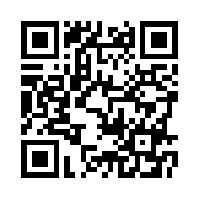Influence of intense training program on cardio stress index
Abstract
Armed service recruits are faced with many stressors, including a strenuous training regimen that may have an impact on their physiological functioning. The Cardio Stress Index (CSI) is a noninvasive marker of the stress that the heart is experiencing. The aim of the study was to test the physiological impact of 20 weeks of intense training of armed service recruits, using CSI as a noninvasive biomarker of cardiac stress. Armed service recruits are faced with many stressors, including a strenuous training regimen that may have an impact on their physiological functioning. The CSI is a noninvasive marker of the stress that the heart is experiencing. The calculation of the CSI is based on the duration of vascular excitation (QRS duration), heart rate, heart rhythm and standard deviation of the duration of time between each successive cardiac cycle (RR-interval). The aim of the present study was to test the physiological impact of 20 weeks of strenuous training of armed service recruits, using CSI as a noninvasive biomarker of cardiac stress. Experiments were conducted at three points in time (weeks 1, 12, 20) during the basic military training of armed service recruits (n = 202, males = 115, females = 87), aged between 18 and 24 years. Variables measured include: Resting CSI, heart rate and blood pressure. Data analysis was performed, using paired t-tests for pairwise comparisons of week 1 (baseline) with week 12; week 12 with week 20; and week 1 with week 20. The average CSI and heart rate remained within normal values for male participants on all three testing occasions. However, baseline readings for females were significantly higher during week 1. There was an overall decrease in the CSI in the 20 week time frame. From this study it seems as if the CSI measurement is a noninvasive method to establish the effects of training on the health of the heart.
Published
2014-11-13
How to Cite
du Toit, P., St. Clair Gibson, A., Wood, P., Grant, C., Grimes, K., Tope, A., Janse van Rensburg, C., van Rooyen, J., Mckune, A., Nortj�E., Fletcher, L., Ferreira, R., Joubert, A., & Stander, A. (2014). Influence of intense training program on cardio stress index. Suid-Afrikaans Tydskrif Vir Natuurwetenskap En Tegnologie / <i>South African Journal of Science and Technology</I>, 33(1), 6 bladsye. https://doi.org/10.4102/satnt.v33i1.1180
Issue
Section
Oorspronklike Navorsing

